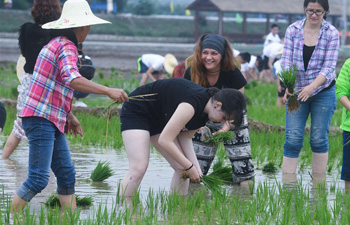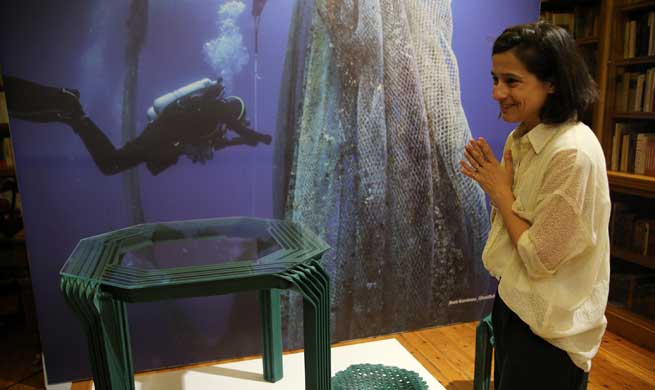WASHINGTON, June 2 (Xinhua) -- American researchers reported on Friday in the journal Cell Stem Cell the first-in-human phase 1 clinical trial in which neural stem cells were transplanted into participants with chronic spinal cord injuries produced measurable improvement in three of four subjects, with no serious adverse effects.
Using a human spinal cord-derived neural stem cell line, the trial had four trial participants receive six injections, each containing 1.2 million neural stem cells. Those participants had one- to two-year-old permanent injuries to T2 to T12 thoracic vertebrae, located in the middle of the spine.
"The primary purpose of this first trial was to assess safety. And no procedure-related complications were observed in any of the patients," said Joseph Ciacci, the principal investigator and a neurosurgeon at University of California (UC) San Diego School of Medicine.
"Our results suggest the approach can be performed safely and early signs of efficacy warrant further exploration and dose escalation studies," said Ciacci.
In previous research, published in 2013 by Ciacci and co-author Martin Marsala, professor in the Department of Anesthesiology at UC San Diego School of Medicine, stem cells were transplanted into rats with spinal cord injuries, resulting in neuronal regeneration and improvement in the animals' functioning and mobility.
In the latest human clinical trial, the results (measured 18 to 27 months after transplantation) were not dramatic, but encouraging.
Analysis of motor and sensory function and electrophysiology results showed improvement in three of the four participants.
"This is a small sample size, but the real strengths of this study are the extensive follow-up period, electrophysiological assessments and the timeline of treatment. Everyone was treated after a year of injury, meaning there was essentially no chance of spontaneous recovery," said Ciacci.
A second clinical trial is in development. Its focus will be subjects with cervical injuries.

















